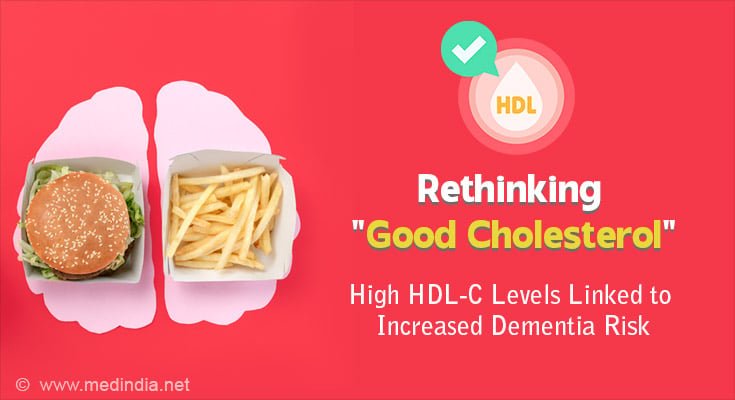Risks of Excess ‘Good’ Cholesterol on Brain Health

The research focused on participants from the Aspirin in Reducing Events in the Elderly (ASPREE) trial, specifically targeting older individuals without prior cardiovascular diseases or severe chronic conditions. Initially, these participants, hailing from Australia and the U.S., were cognitively healthy. Regular health check-ups, including HDL-C level measurements and dementia assessments, formed a crucial part of the study.
Traditionally, HDL-C, labeled as “good cholesterol,” was associated with a lower risk of cardiovascular disease. The results showed a substantial association between very high HDL-C levels and increased dementia risk, especially in those aged 75 and older. The study challenges the conventional wisdom that higher HDL-C levels are universally advantageous. This suggests a need for a reevaluation of HDL-C level guidelines, particularly for older adults.
The study revealed that participants with exceedingly high levels of good cholesterol (over 80 mg/dL) faced a 27% higher risk of developing dementia compared to those with moderate HDL-C levels.
Advertisement
This association was more pronounced in individuals aged 75 and above. Notably, the study observed a nearly linear increase in dementia risk with rising HDL-C levels.
Challenging Conventional Wisdom
These findings challenge the traditional belief that higher HDL-C levels are universally beneficial. While moderate amounts of good cholesterol are advantageous, very high levels seem to have a detrimental impact, especially concerning cognitive health.
The reasons behind this unexpected association remain unclear. Speculations suggest that at exceptionally high levels, HDL-C might undergo structural changes, affecting its function and potentially leading to health issues, including dementia. However, further research is imperative to unravel the underlying mechanisms.
Dr. Monira Hussain, the first author and senior research fellow at Monash University School of Public Health and Preventive Medicine, emphasizes the need for additional research to comprehend the role of very high HDL cholesterol in brain health. She suggests considering these levels in prediction algorithms for dementia risk.
Published in The Lancet Regional Health – Western Pacific, these findings hold significant implications. They suggest that maintaining HDL-C levels within a specific range might be more beneficial, especially for older adults. Furthermore, they underscore the necessity for more nuanced guidelines in cholesterol management.
Holistic Approaches to Cardiovascular Health
In light of these findings, the importance of balanced cholesterol levels becomes even more evident. While HDL-C is essential, moderation appears to be key. The study prompts a reevaluation of our understanding of cholesterol and its impact on overall health.
In addition to medical considerations, lifestyle choices play a crucial role. Incorporating key sources of “good cholesterol” into the diet, such as fatty fish, olive oil, nuts and seeds, avocados, whole grains, and legumes, can contribute to a heart-healthy lifestyle. Regular exercise, quitting smoking, and maintaining a healthy weight are also vital components of this holistic approach.
As the medical community grapples with these unexpected findings, individuals are encouraged to stay informed about evolving health guidelines and to make informed choices for their well-being. The journey to understanding cholesterol and its intricate role in health continues, shaping the future of cardiovascular health recommendations.
Reference :
- Why too much ‘good’ cholesterol could be pretty bad for your brain – (https:studyfinds.org/good-cholesterol-hdl-dementia/)
Source: Medindia
Source link
#Risks #Excess #Good #Cholesterol #Brain #Health



